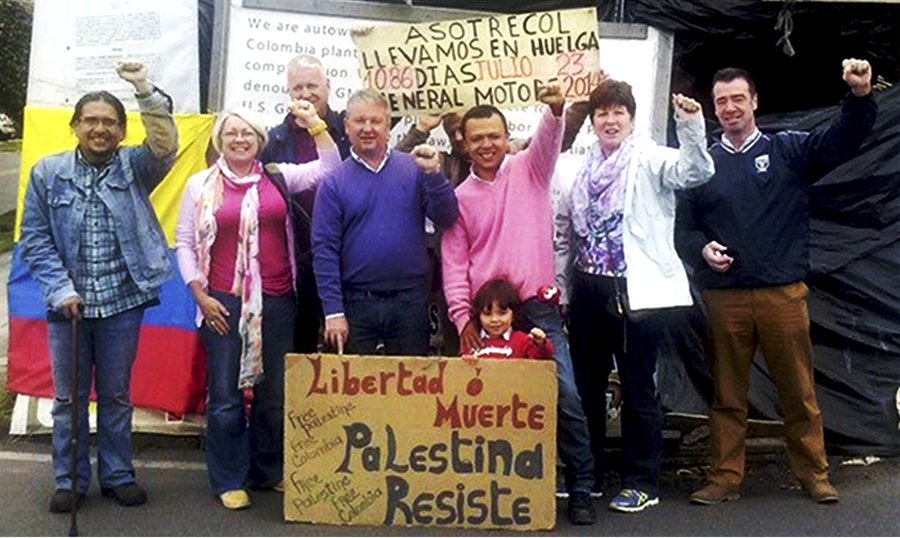

Encampment at U.S. Embassy in Colombia.
A group of injured workers set up a tent encampment outside the U.S. Embassy in Bogotá, Colombia, on Aug. 1, 2011. Formerly exemplary workers at General Motors’ Colmotores plant, they were among hundreds who had been fired after sustaining work-related injuries that left them unable to do their jobs. The Association of Injured Workers and Ex-workers of Colmotores chose the U.S. Embassy because the U.S. government had bailed out GM during bankruptcy and was, at that time, a majority shareholder.
Three years later, after holding four hunger strikes with their lips sewn shut and two staged crucifixions, and, recently, burying themselves up to their necks, workers are still holding up the encampment while GM refuses to even meet with them. What they want is to be retrained by GM for jobs they can perform with their disabilities. GM continues to deny that they were hurt on the job and claims it offered the workers a “generous” settlement during a mediation two years ago.
The Asotrecol Solidarity Network has held many protests outside GM dealerships and, in Detroit, outside GM world headquarters — where they demonstrated again on the occasion of the encampment’s third anniversary.
As shown by this recent photo from the encampment, the workers know that their struggle is part of the global struggle of all workers and oppressed people.
For more info, visit asotrecol.org.
This statement was recently issued by over 30 groups. On Friday, March 28, Dr. Helyeh…
By Jeri Hilderley I long for peace and ease as stress and anxiety overtake me.…
Los siguientes son extractos de la declaración del Gobierno de Nicaragua del 9 de abril…
The following are excerpts from the statement of the Nicaraguan government on April 9, 2025,…
The following is a statement from the organization Solidarity with Iran (SI) regarding the current…
By Olmedo Beluche Beluche is a Panamanian Marxist, author and political leader. This article was…